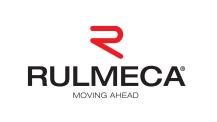Track access charges set to increase
Rises represent an exercise in regulatory economic theory without an understanding of market reality, says FTA
LAST week’s decision by the Office of Rail Regulation (ORR) to increase track access charges is a heavy blow that could halt further rail freight growth in its tracks, says the Freight Transport Association (FTA).
In particular, the Association says the decision to target certain traffics, such as coal and iron ore, on the basis that they are captive and have no option but to pay up could be viewed as cynical.
The FTA feels that market reality is that road freight costs and prices are under continuous competitive downward pressure, and that increasing rail freight costs will only serve to widen the gap between road and rail, resulting in a switch back to road and jeopardizing modal shift policy objectives.
The FTA points out that following the McNulty report into the cost efficiency of Britain’s railways, which pointed to the need to cut high UK rail costs, the focus should be on cost reduction, increased efficiency and enhanced productivity.
The Association believes that many will find it ironic that the Regulator is raising the cost of rail freight when it should be exercising its powers to reduce costs through enhanced performance and productivity gains.
The ORR’s delayed announcement will see the variable usage charge that freight train operators pay to use the network rise to a ‘capped’ maximum of £1.68 per 1,000 gross tonne miles. The actual rise will be finalized next year but will inevitably put up operating costs to end customers, says the FTA.
Moreover, the FTA believes that the charges for electricity supply industry coal traffic to power stations going up by £4.04 per 1,000 gross tonne mile, while less than originally threatened, is still bad, particularly for Scottish-mined coal that has further to travel to English power stations.
FTA rail freight policy manager Chris MacRae said: ‘This is bad news for rail freight, for British industry and for the environment. At a time when the Government’s in Westminster and Holyrood are investing £200 million and £30 million, respectively, to enhance their rail networks for freight, it is ironic that ORR is pursuing a policy of increasing the costs for freight to use the rail network.
‘This is in contrast to previous policy that has been to reduce these costs – a policy that helped stimulate rail freight growth. We’ve got coal-producing members who will now be driven to shift their traffic from rail to road; how does that fit with government environmental agendas?’



